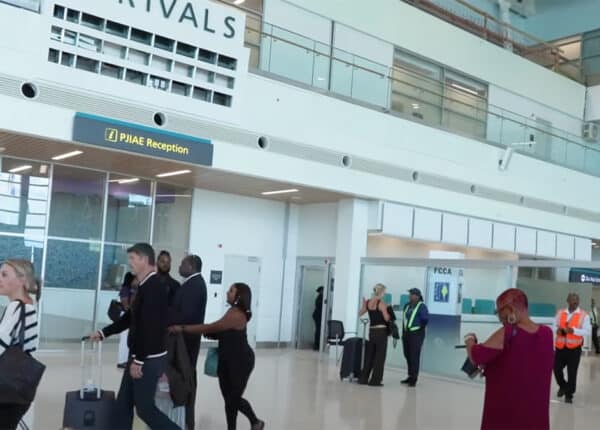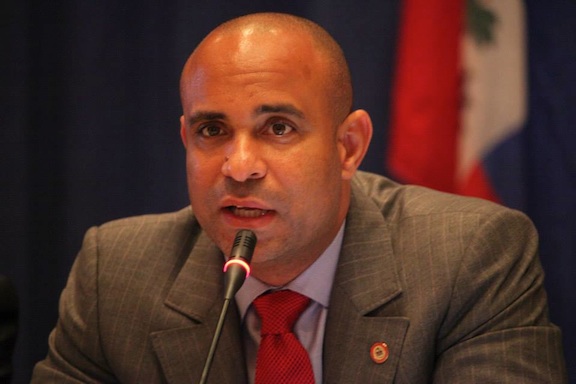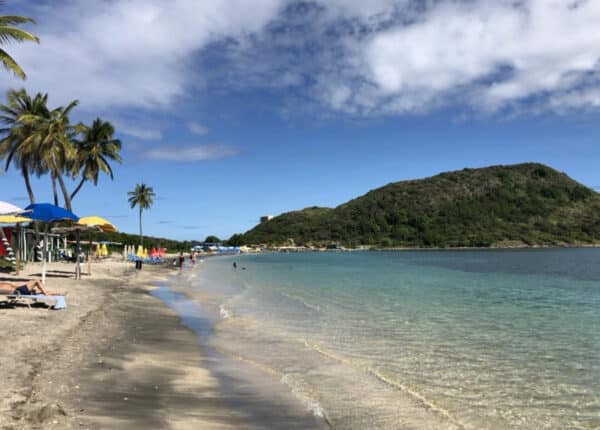Haiti Prime Minister Laurent Lamothe on the New Haiti
Above: Haiti Prime Minister Laurent Lamothe (Photo: OPM Haiti)
By Alexander Britell
It’s been a period of change for Haiti in the nearly five years since the devastating earthquake in 2010. A country prone to often significant change has continued to see much of it, from a progression from relief to recovery and a major repositioning in the Caribbean region to a lingering cholera crisis and an electoral deadlock that threatens to place the country in a political stalemate. But perhaps the signature achievement for the country in the last four and a half years is that, for the first time in a long time, people are talking about Haiti in new ways. That means tourism, it means tablet computer production and it means a crucial shift for a country that has needed a new conversation for decades. To learn more about Haiti’s changes and the state of things, CJ caught up with Haiti Prime Minister Laurent Lamothe about developing a new Haiti.
What is the state of Haiti today?
Well, Haiti is being transformed on a daily basis, and is improving incredibly. It’s moving from the past, moving from emergency humanitarian relief to rebuilding itself into a more resilient and modern state.
What have been the biggest transformations?
Well, the biggest has certainly been the security aspect. Second, the social changes and the social policies, the social reforms of the government, implementing a very strong social assistance programme to fight against extreme poverty and inequality and mixing that with a promotion of investment in the country to create jobs.
What is the investment climate like?
Investment has grown by 25 percent and is continuing to grow. In terms of hotel investments, it’s been around $100 million in the past year and a half, with major name brands coming to Haiti. So we’re very excited about the prospect and the tourism development. There are also industries coming to Haiti, with over 3,000 jobs created in Caracol.
What is the state of the economy?
We’ve made a lot of progress. But the progress is still fragile. We need to diversify our growth sectors, and we definitely need to keep the policy of job creation and attracting investment into the textile sector, and to focus on being self sufficient in terms of food security. It’s also about investing more into the agricultural sector, into the transportation sector, into food processing. And continuing the reconstruction of infrastructure.
Is there a part of Haiti’s economy you think has untapped potential?
Certainly the potential untapped in the tourism sector. We just had a major deal with Carnival, and we are waiting to welcome Carnival customers that will enjoy some of the world’s nicest beaches in the northwest of Tortuga. But the potential of tourism is untapped, particularly our cultural tourism.
How does Haiti attract tourists in a competitive tourism region?
It is just a question of communicating. Because Haiti does have some of the world’s nicest beaches, the sun, the sea, the beautiful coconut trees. So it was a question of shifting the focus toward that, and talking about what’s good of Haiti. Before, past administrations never focused on promoting the good side of Haiti, and we have decided to do that and we’re doing that by having agreements with major companies to come over and see what Haiti has to offer.
The leading economic driver for the vast majority of the Caribbean is tourism. Is it logical for Haiti to follow that model?
Definitely. 100 percent.
Moving to long-delayed elections — will Haiti hold elections by the end of this year?
We’re looking at the end of this year. The issue with the elections is that there are six senators that are refusing to vote on the electoral law, so we’re waiting for that. Everything else relies on that. The financing is ready. But we’re waiting for the six senators blocking the quorum, as the majority of senators want to pass it.
Haiti and the Dominican Republic recently embarked on a regular high-level dialogue. How have thees talks been progressing?
The dialogue resulted in a better understanding of the government’s position, and also of the passage of the law regulating citizenship [in the Dominican Republic]. And many agreements have already been signed, and they’re working pretty well. So both governments are working to continue to improve relations. So we’re doing it in a serene atmosphere, and one where we feel that we are moving well together.
Last year’s Constitutional court case in the Dominican Republic impacted the citizenship of as many as hundreds of thousands of Dominicans of Haitian descent. What is the position of Haiti’s government on that issue, and how are talks progressing on that?
We want the plan to work. That’s why the Haitian government has put in a programme to give Haitian workers papers. And over $2.2 million will be invested into that programme, in order to give our citizens [abroad] the right papers, and that’s for the migrant workers. We have a strong hope that the programme that the Dominican government recently put in will be effective and able to solve all the issues that the people affected by the ruling are facing.
Have these talks impacted the relationship between Haiti and the Dominican Republic, which has often been a stormy one?
Absolutely. For any relationship, it has to be based on respect. And that’s what we have for one another now. And we feel that things are moving forward.
Last year, a lawsuit was filed against the United Nations for its alleged role in bringing the cholera epidemic to Haiti, a suit which seems to have waned in recent months. Do you believe it is time for the UN to take responsibility for its role in this crisis?
Well, we’ve met with the Secretary General of the United Nations. We asked him to accept more responsibility, which he did. The United Nations Secretary General came to Haiti and he took more responsibility — we have a high-level commission to take funds for this cholera issue. We inaugurated a cholera prevention campaign for water and sanitation, so a lot has been done. And definitely the government would like to see that more funds are disbursed for support for the cholera eradication plan. We are having different meetings in New York to raise funds to support the four-year plan for solving this issue.
Haiti has been hosting a number of regional conferences in the last few years, and seems to be looking to change its position within the region. How do you see Haiti’s position in the Caribbean?
Haiti used to be the “pearl of the Caribbean.” And past governments have failed to promote Haiti and our values. We’re doing that, and we’re taking our rightful place in the Caribbean family.
How have other Caribbean governments responded so far?
It’s been very warm. The reception has been excellent and very warm. We feel that we have a very integral role to play in the Caribbean Community in CARICOM, so we’re very excited and happy with the reception.
What should the “new Haiti” look like?
Reducing poverty, promoting social changes, continuing the education fund we started. We want to work on the quality of education, to secure training to have a more educated nation that, in turn, will reduce inequality, reduce poverty and [lead to] a have a better trained and educated work force. And at the same time, we want to create the conditions for those jobs to be created — for international investors, for local investors to come in, so that the new Haiti would be one that’s resilient, one that finances 100 percent of its budget, one where tourists are coming to enjoy what we have, for a safe and secure Haiti.






